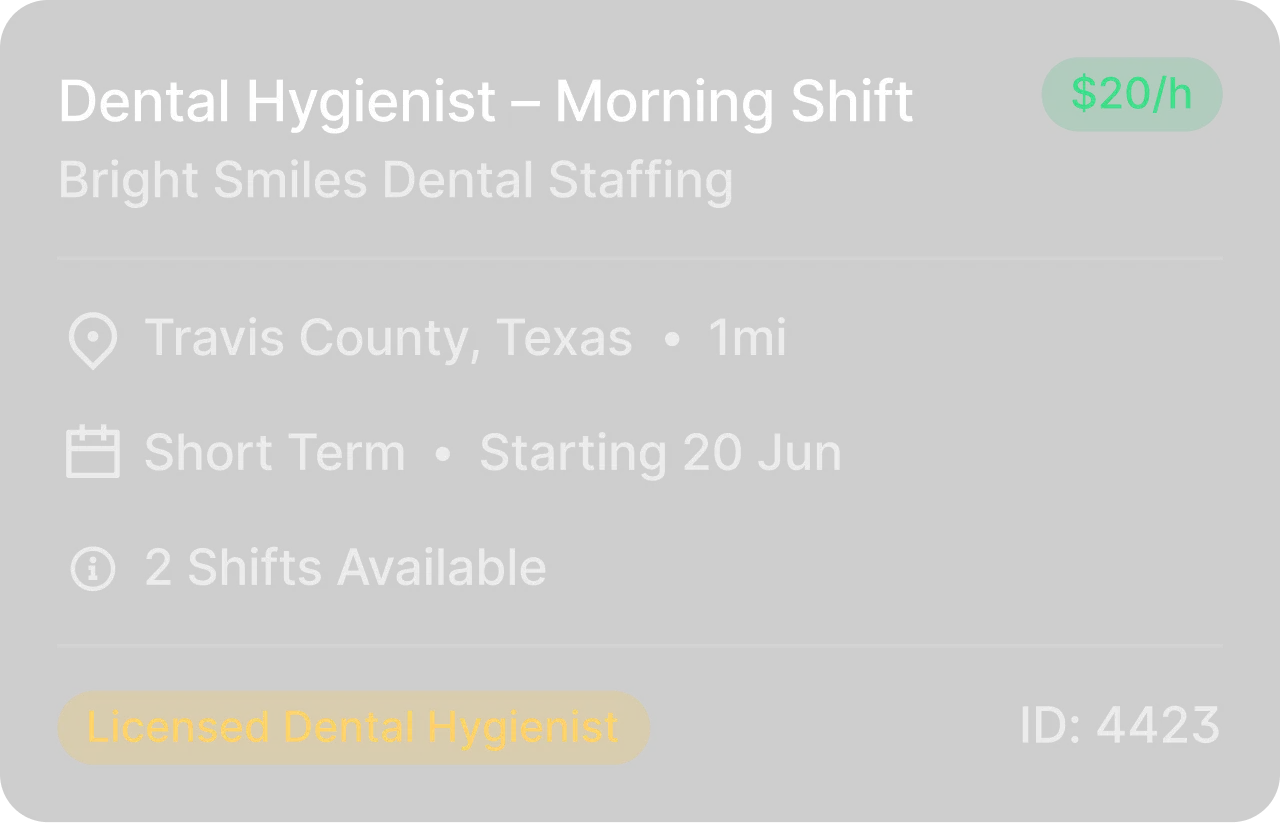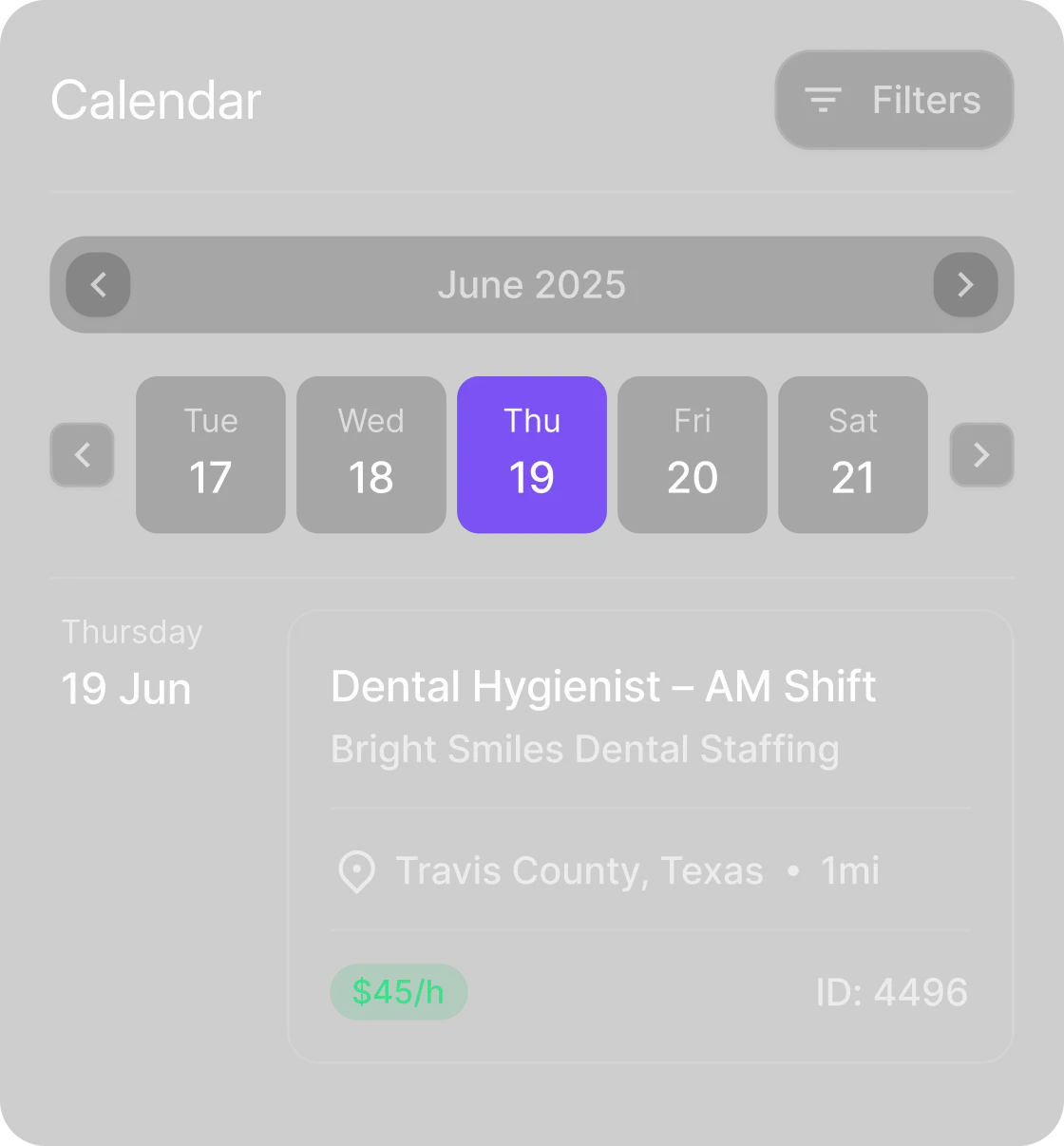
Dental Staffing Platform
Beyond Job Boards: How DSOs and Staffing Companies Are Building Connected Talent Networks That Save Millions
19 Sep 2025

For decades, job boards served their purpose: connecting brands with jobseekers for full-time roles. But staffing has changed. Hygienists now pick up a few shifts a week. Assistants move between offices. Clinicians want flexibility.
This is flexible labor — and flexible labor runs on platforms, not job boards.
The Hidden Asset DSOs Already Own
Large DSOs spend millions annually on staffing to ensure access to reliable talent. What most don’t realise? They already have a powerful solution: their own talent pool.
Hygienists who loved working with you last month. Assistants who know your systems. Clinicians credentialed in your network. They exist — just scattered across disconnected spreadsheets, phone calls, and relationships, with no system to tap into them first.
Meanwhile, offices juggle multiple staffing partners and platforms, creating inefficiency and letting dominant external platforms dictate terms. The problem isn’t access to talent; it’s orchestration.
Orchestrate First, Outsource Second
Forward-thinking DSOs are creating branded platforms that:
- Let each office set specific requirements — skill, experience, scheduling, rates — in real time.
- Check the internal network first. Past, trusted clinicians get the first opportunity.
- Reach out to all external partners simultaneously only when there’s a true gap.
One DSO in the Southwest cut fill times by 35% and improved cost efficiency by 20% by putting this orchestration model in place.
The Impact
- Visibility and activation – Past talent becomes a living network.
- Better matches – Offices get exactly what they need, faster.
- Strategic partnerships – Staffing firms focus on specialised, high-value work instead of competing with your internal pool.
- Quality and consistency – Familiar clinicians become an extension of your team.
- Optimised economics – Direct rates internally, competitive bids externally.
- Lower admin – One system replaces many, freeing your corporate team.
Why DSOs Are Uniquely Positioned
- Existing network of clinicians who know your brand and culture.
- Geographic density allowing the same trusted clinicians to work across locations.
- Local insight from office managers who know what works.
- Established relationships with talent and partners.
- Brand trust that attracts clinicians to work directly with you.
Instead of surrendering these advantages to external platforms, orchestration amplifies them.
The ROI
When multiple partners compete for urgent shifts, fill times drop from hours to minutes. Competitive dynamics optimise pricing automatically. Performance becomes transparent when everyone operates on the same platform.
One mid-sized DSO saw 89% of urgent shifts filled within two hours — compared with six to eight hours under single-partner arrangements — and reduced effective rates by up to 25%.
Activate in 30 Days
Modern orchestration platforms integrate with your existing relationships and systems. No dev team, no disruption, no complex migrations.
The only question is whether you’ll activate your network before your competitors do.
Wolf helps DSOs orchestrate their own talent networks first, then tap multiple partners for genuine gaps — live in 30 days.

Launch Your Own Branded Staffing Platform—Fast
Book a demo to see how Wolf automates matching, scheduling, and payments under your brand.



.png)

